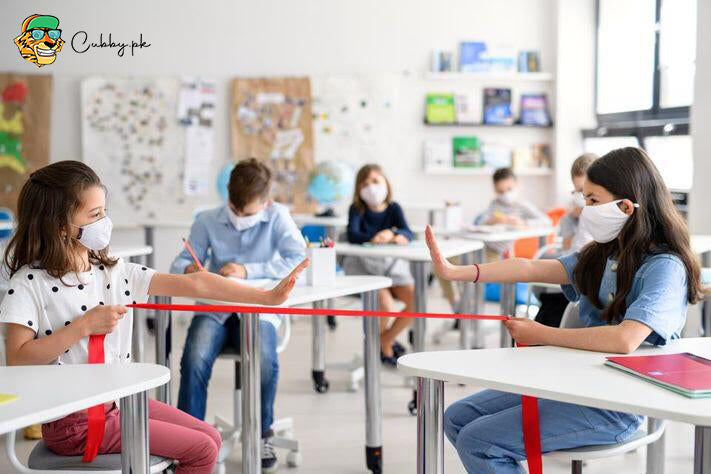
Back to school? Your child’s mental health
With life resuming as we once remember it to be, there is loads to catch up on. One thing on every parent’s mind at the moment is “can I send my child to school?”. If you live with elderly grandparents this becomes an even more potent question. After all it isn’t about what you get it’s about who you may pass it on to. In all this confusion we seem to miss out on the bi-factor involved in the mix – one being the obvious party ‘the parent’ and the not so highly considered ‘child in question’.
Being a traditionally patriarchal society that focuses on the “ab tum bachay nahi rahay ho” pivot, we often always overlook how are child is feeling. On the one hand we want them to grow up and act like adults with the click of our fingers on the other we don’t consider the burden this bears on them. Mental health for children is casually brushed away with a “yeh to meri har baat sunta hai”
stroke and we often overlook the consequences it may have. Children are often emotionally blackmailed or worse forced to do as the parents say without considering how they feel (or even reasoning for why they need to act as requested).
After being off school for so long, and hearing about the adversities caused by Covid-19 it is only natural that many young children will be worried about returning to school.
Here are some tips from our Parents Helpline team on how you can support your child to transition back to school life:
1. Talk to your child about how they are feeling
about going back to school and try not to
make assumptions. Ask them if they are worried or feel scared about anything, but also if they are excited about or looking forward to something. No matter how your child feels, let them know that it is completely normal to feel a mixture of emotions and that everyone will be in the same boat. If you struggle with this, maybe have a look at more advice on starting a conversation with your child.
2.Provide your child with as much information about their new routine and school day as you can.
This will help them to prepare for any changes that have been made to the timings
of their day, the layout of their classroom, their peer groups and playtimes. For younger children, it can be really helpful for them to visualise these changes – so ask your child’s school if they can send any pictures or details on changes (if any) to help make things feel more familiar.
3.Reassure your child.
During the lockdown we have been told to stay at home, remain socially distant from others and wash our hands regularly. This means children may find it
difficult to go back to school because it will be a huge change from what they have been asked to do during the pandemic. Talk with your child about ways they can stay safe at school, such as washing their hands every hour for at least 20 seconds as they are in public space touching surfaces, and reassure them that the school are putting measures in place to keep them safe.
4.Re-establish a routine to help ease into school life.
During lockdown it is understandable that your family’s routine may have changed. Children are likely to have been waking up later or going to bed later. To help them get ready for school, try to gradually get them back into their usual morning and bedtime routines as they get closer to their return date.
5.Don’t put pressure on yourself.
The transition back into school is likely to take some time.
Lots of children will experience ups and downs. Try your best to support, reassure and comfort them, without putting pressure on yourself to make sure their homework is done or they settle into a new routine straightaway.
6.Think ahead.
As well as reflecting on what has happened during the past few weeks, it is
important to help children develop hope and a sense of excitement for the future. At a time like this, it can be hard to feel positive, but identifying the things that they can look forward-to will help them to realise that the current situation won’t last forever and their feelings will change. Remember: You can’t know what the “right” decision is If you could see into the future, you would know what would happen if you sent your child back to school. Unfortunately, this is something no one can know. Therefore, the question about whether tonsend your child back to school or not doesn’t have a correct answer. All you can do is make the best
decision possible with the information that’s currently available.
This involves thinking through the advantages and risks of each option – keeping your kid(s) at home vs. having them return to school. Anxiety often predisposes us toward thinking about just one option and how it might go wrong. Try to counter that by thinking through both sides to this proverbial coin..

Leave a comment